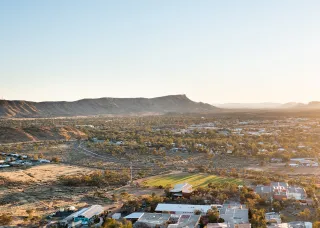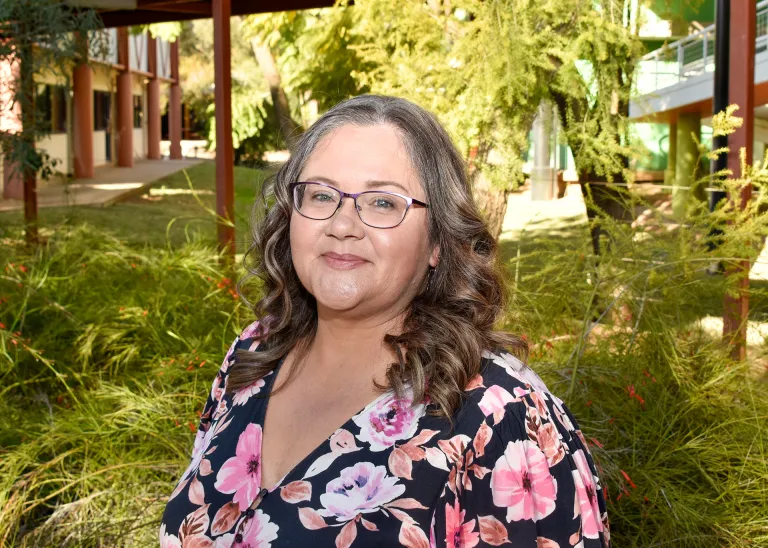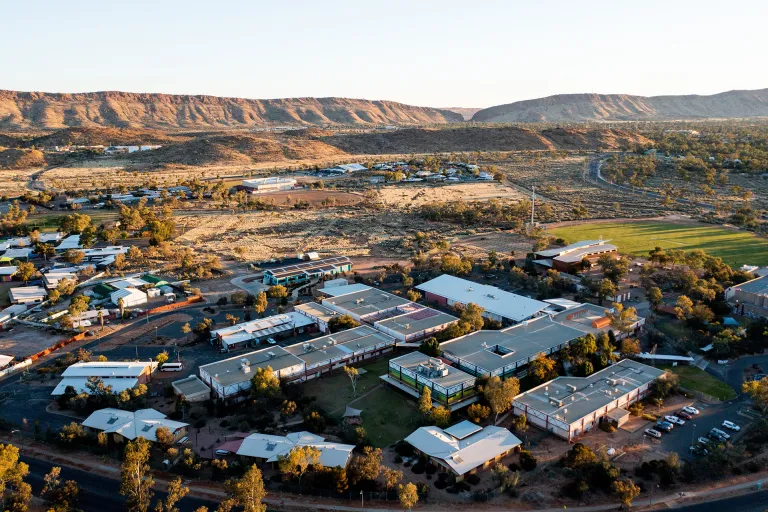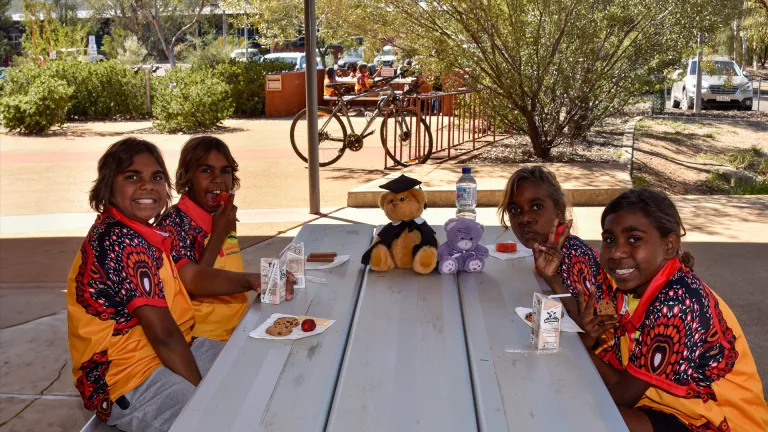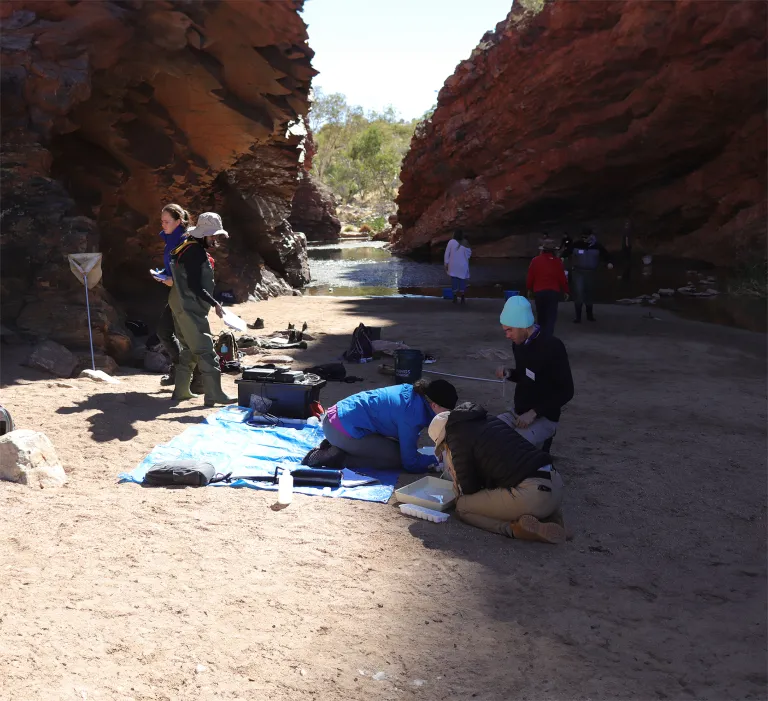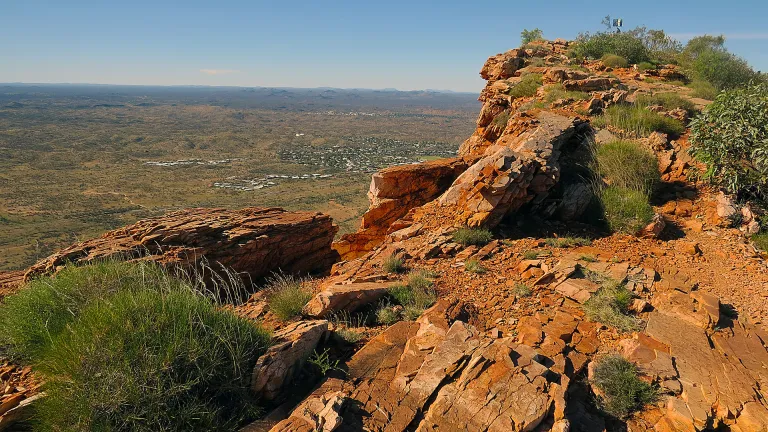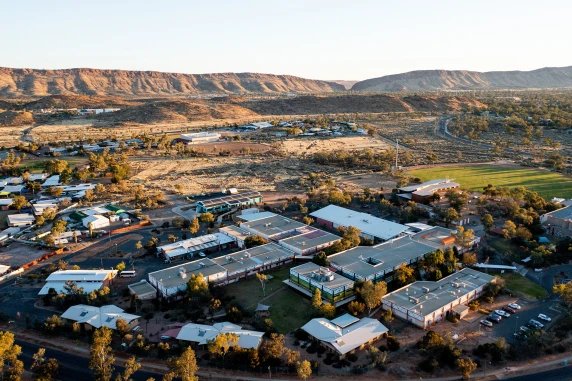Gateway to the Red Centre
Alice Springs (Mparntwe) is nestled in the heart of the Red Centre, a region known for its rugged landscapes and cultural richness. Surrounded by red earth and mountain ranges, Alice Springs is the perfect base to experience the vast Central Australian desert.
Welcome to the Red Centre of Australia
Alice Springs is located in the outback of the Australian continent, approximately halfway between Darwin and Adelaide. With a culturally-diverse population of 25,000 people, it is the second-largest city in the Northern Territory.
About CDU Alice Springs
Things to see and do
Alice Springs is the physical and spiritual heart of our beautiful country. The town is recognised as one of the most diverse and accepting communities in the country, and the 25,000 residents have come from far and wide.
To find out what’s on, visit the following sites:
Our top three favourite things to do in Alice Springs:
Climate
Alice Springs experiences desert weather with hot summers and cold winters.
Summer (December – February)
In summer, average temperatures range from 20 - 35°C (68 - 95°F) and January is the wettest month of the year.
Autumn (March – May)
Autumn is warm days and cool nights. Average temperatures range from 12 - 27°C (53.6 - 80.6°F).
Winter (June – August)
During winter, average temperatures fall between 4.8 - 20°C (37–68°F). Temperatures at night can drop below 0°C (32°F).
Spring (September – November)
In spring, the weather begins to warm up, with average temperatures between 13.8 - 30.6°C (56.8 - 87°F).
Transport
There is a public bus service that operates Monday – Saturday excluding public holidays.
Alternatively, the town centre is quite small, so you can easily walk or ride a bicycle. The Northern Territory Government has produced this walking and cycling path map.
Taxis are also available.
Accommodation
CDU operates Alice Springs' student accommodation. It is only two kilometres from Alice Springs' CBD, and designed as a twin-share facility. For more information visit Alice Springs Student Accommodation.
Share accommodation in Alice Springs can vary in price depending on the suburb. Renting options can be found online:
Cost of living
The cost of living in Australia varies from person to person depending on where you live and your lifestyle choices. Students should not expect to fund their studies or living costs in Australia through part-time employment only.
During your studies, you will need to purchase textbooks and other items required to study. Textbooks can vary from $200 - $500 per semester. Other expenses might include stationery, printing, purchasing a laptop or computer, protective clothing, work materials, travel and accommodation for placement, working with children clearances and computing programs. Find out more about additional fees and expenses.
The Department of Home Affairs (DHA) has financial requirements you must meet in order to receive a student visa for Australia. As of October 2019, the 12-month living cost (per person) as suggested by the DHA are:
- Individual student – $21,041
- Partner or spouse – $7,362
- Child – $3,152.
For an approximate guide on Education and living costs, visit Study in Australia.
Other expenses and fees
Find out more about the cost of living and studying in Australia.
Other things you might be interested in
-
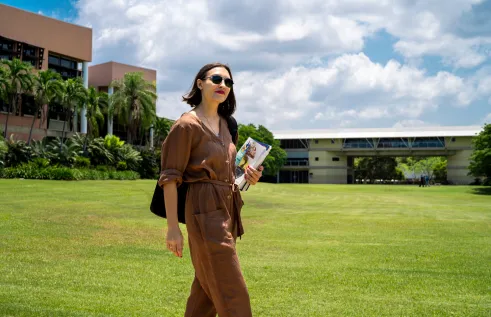
Study in Darwin
Darwin is a unique tropical city in northern Australia famous for its multiculturalism, spectacular natural scenery, markets, Indigenous culture, and fascinating history.
Study in Darwin -
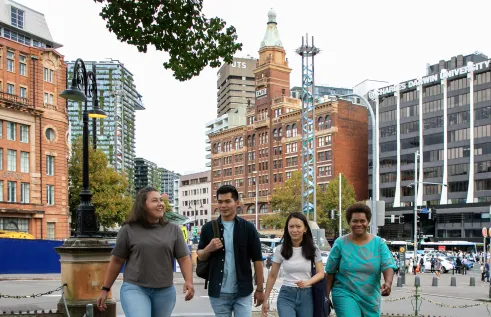
Sydney
CDU Sydney: Study in the heart of Sydney's CBD and immerse yourself in one of Australia’s world’s most dynamic, vibrant and multicultural cities.
Sydney -
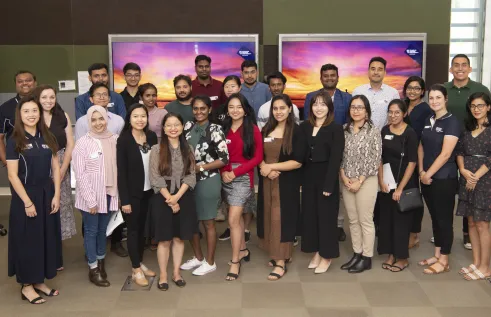
International student scholarships
CDU offers an exciting and generous range of scholarships to support international students coming to study at CDU from around the globe.
International student scholarships
Message from the Associate Vice-Chancellor
CDU Alice Springs strives to enhance Central Australia and the Barkly region's economic growth and liveability. We have dedicated additional resources and leadership in the region, allowing us to introduce new courses in vocational and degree education that align with local needs. Through partnerships, collaboration and industry engagement, CDU Alice Springs can effectively support local workforce needs through education, training and research to drive change.
Through genuine partnerships with local First Nation organisations and communities CDU Alice Springs endeavours to be a leader in First Nations education and engagement.
The CDU Alice Springs team understands the intricacies of studying, living, and working in Central Australia and are committed to our students learning experience and empowering the next generation of local leaders and change makers.
Jodie Summers, Associate Vice-Chancellor, Central Australia
About CDU Alice Springs
We believe in the power of diverse educational opportunities. As a leading dual-sector educational hub in Central Australia, CDU Alice Springs offers various programs including degree education and vocational studies supporting domestic and international study opportunities. The campus features modern facilities, including an 85-seat lecture theatre, specialist IT classrooms, clinical training laboratory for nursing, simulation spaces for paramedicine and a science laboratory.
To encourage young people to explore futures in industry, CDU delivers vocational education and training to all high schools in Alice Springs and a number of secondary schools in surrounding remote communities. This program inspires students to learn new skills in a hands-on environment. Find out more about TAFE courses on offer.
Beyond the campus walls, CDU Alice Springs also plays a crucial role as a training hub for remote communities in the Northern Territory. CDU’s TAFE training facilities, including the state-of-the-art Trades Skills Centre, offer vocational studies in various industries, encouraging students to undertake trade skills and apprenticeships locally.
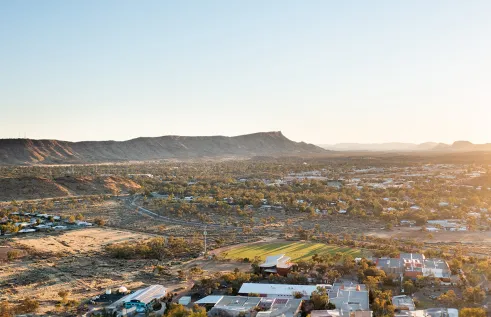
Alice Springs courses
Study a TAFE or higher education course on campus or online from Alice Springs.
What we offerCharles Darwin Children’s University
Beyond the traditional classroom setting, this program engages young people in out-of-school learning by nurturing their passions and interests.
Launched in Alice Springs in 2022, the Children’s University inspires curiosity, creativity and a thirst for knowledge among its students. This not only enhances their potential for academic success, but also empowers them to become lifelong independent learners.
Research
Find a research project in the heart of Central Australia.
CDU Alice Springs is a base for diverse research opportunities, with a focus on driving powerful advancements in crucial fields and making a tangible impact.
Research areas include:
- First Nations development and community resilience
- natural resource and conservation management
- intergovernmental relations, local government and policy management
- workforce development in regional and marginalised areas
- policy implementation in regional areas
- regional development and growth in remote areas
- mobile-end technology-based learning
- learning identity
- First Nations enterprise development in remote areas
- regional development and governance in Northern Australia and neighbouring regions
- marginalised learners and access to knowledge systems
- community engagement.
Find out more about research at CDU.
Services, student accommodation and life in Alice Springs
-
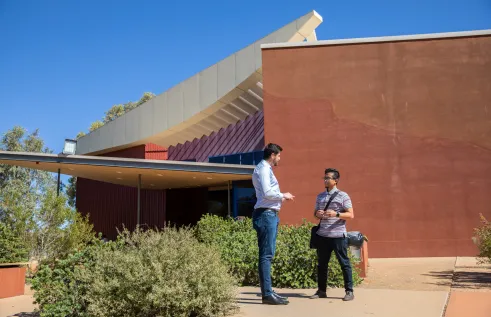
Our services
CDU Alice Springs has resources to support students at every stage of their learning journey.
Find out more -
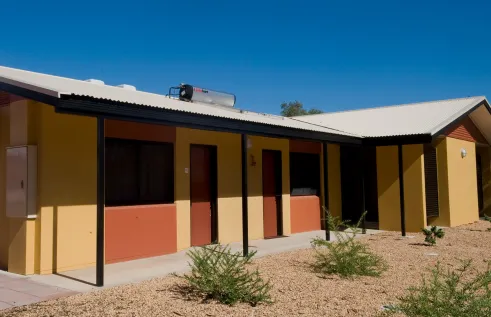
Alice Springs accommodation
The Alice Springs Student Accommodation (ASSA) provides accommodation for CDU students, students from other universities undertaking placement, CDU staff, visiting guests, and groups.
Find out more -
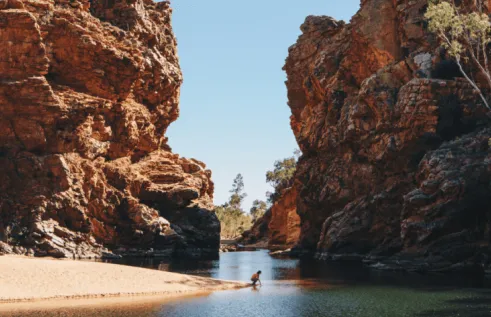
Living in Alice Springs
Find out what to expect when living in Alice Springs, including climate, things to do and popular attractions.
Find out more
“I have lifelong skills that I can apply to my future career, study and personal life…I feel as though I can apply what I learned to many industries, and it is definitely a qualification worth having.”
Lachlan Symons, VET in Schools student
Supporting the Central Australia region
CDU Alice Springs plays a strong role in the wider Central Australia region through a broad range of initiatives.
With a commitment to fostering partnerships, CDU collaborates with various local organisations and businesses, including Desert Knowledge Australia, Tourism Central Australia and the Chamber of Commerce, to support social and economic growth. These collaborations aim to amplify our impact and leverage innovation and collective knowledge for the benefit of the region.
CDU's presence in Alice Springs also extends beyond its physical campus through remote delivery, ensuring that education and workforce development opportunities reach even the most remote corners of the Northern Territory.
Where to find us
Location
10 Grevillea Drive
Alice Springs
NT 0871
Contact us
1800 654 865 (Freecall)
08 8959 5311
Find your way around the campus
The campus is founded on a strong research culture in areas of Indigenous engagement, health and economics and the environment. The campus services regional communities from northern South Australia through to the Barkly Tablelands.
Regional news
-
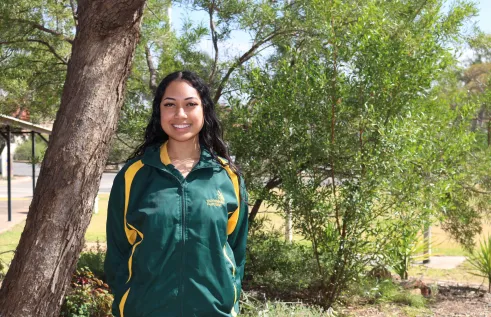
Alice Springs resident is vying for a spot on international team
A beauty student who learnt her trade in the red centre is one step away from taking on the worlds’ best in a competition in China after being named as a member of the Skillaroos.
-
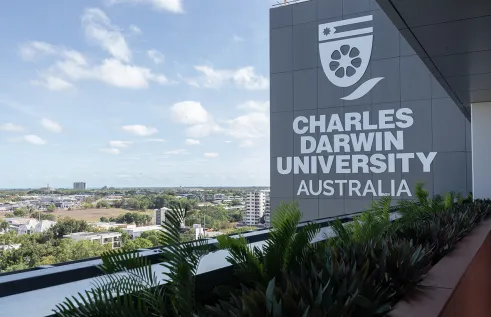
CDU rises in 2026 QS World University Rankings, bucking national trend
Charles Darwin University (CDU) has climbed to 584 in the prestigious 2026 QS World University Rankings - a marked improvement from its position in the 621-630 band last year - defying the national trend.
Read more -

CDU TAFE enrolments on the rise
Enrolment numbers are on the rise for Charles Darwin University (CDU) TAFE.
Read more
Acknowledgement of Country
Recognition of Australian First Nations' traditional owners and cultures
We pay our deepest respects to past, present and future Arrernte Custodians and Elders on whose land we live and work, and extend that respect to all Custodians and Elders across Central Australia and to the continuation of Aboriginal and Torres Strait Islander cultural, spiritual, and educational practices.
